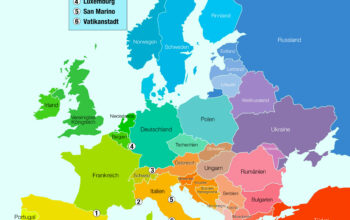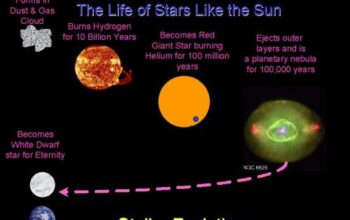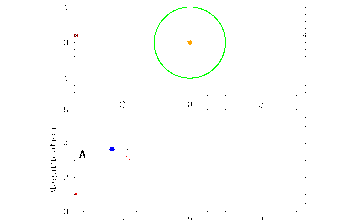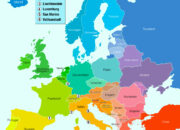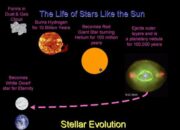Europe’s commitment to advancing astronomical research over the next two decades is encapsulated within its ambitious 20-Year Astronomy Roadmap. This document articulates a forward-looking vision that seeks to invigorate Europe’s position in the global scientific landscape. Through a multifaceted approach, the roadmap delineates key initiatives, technological advancements, and international collaborations aimed at harnessing the full potential of astronomy as both a scientific discipline and a cultural catalyst.
At the heart of the roadmap lies a suite of bold objectives that emphasize innovation and environmental stewardship. The pursuit of breakthroughs in astrophysics, cosmology, and planetary science remains paramount, yet these goals are interwoven with a profound awareness of sustainability. For instance, the integration of green technologies in the construction and operation of observatories underscores a commitment to mitigate the ecological footprint of astronomical endeavors. As telescopes and other observational infrastructures expand, the necessity for responsible resource management becomes increasingly critical.
In terms of content readers can anticipate, the roadmap provides a blueprint for the development of cutting-edge astronomical instruments. The ambition to create next-generation telescopes, both terrestrial and space-based, is highlighted by the integration of artificial intelligence and machine learning capabilities. These advancements aim to enhance data collection, processing, and analysis, allowing for unprecedented discoveries in celestial phenomena. Readers can expect detailed descriptions of specific projects, such as the proposed large-scale observatories that promise to deepen our understanding of dark matter and dark energy.
The roadmap also outlines plans for groundbreaking collaborative efforts between European nations and international partners. The encouragement of astrobiology research is designed to integrate the findings from various disciplines, thus enriching our knowledge of life’s potential beyond Earth. By focusing on exoplanetary atmospheres, potential biosignatures, and the conditions necessary for life, astronomers will work hand-in-hand with biologists, chemists, and geologists. This interdisciplinary approach not only enhances the scientific rigor of the research but also fosters a rich tapestry of transnational exchanges of ideas and insights.
Another vital area of focus within the roadmap is educational outreach and public engagement. The roadmap emphasizes the importance of fostering a scientifically literate society, capable of appreciating the complexities of the universe. Initiatives designed to augment STEM (Science, Technology, Engineering, and Mathematics) education will raise awareness and interest among younger generations. By bringing astronomy into schools, communities, and public forums, the roadmap aims to demystify complex astronomical concepts and inspire a new cohort of scientists and enthusiasts.
Moreover, the roadmap underscores the pressing need for robust data management and sharing protocols. With the exponential growth of data generated by telescopes and space missions, the ability to access, analyze, and utilize large datasets is essential. Emphasizing open access to data not only enhances collaboration among researchers but also democratizes scientific inquiry, allowing citizen scientists and amateur astronomers to contribute to the field in meaningful ways.
One of the more scholarly aspects of the roadmap involves the promotion of ethical considerations in astronomical research. As humanity embarks on new exploratory missions—particularly concerning astrobiology and planetary protection—ethical protocols must evolve accordingly. Discussions surrounding the ramifications of contact with extraterrestrial life or the ethical implications of terraforming other planets are paramount. The roadmap provides a framework for ethical discourse, ensuring that exploration remains rooted in a respect for both cosmic and terrestrial environments.
The roadmap’s strategic vision extends beyond the immediate scientific horizon to contemplate the long-term implications of astronomical research on human society. As discoveries in astronomy often invigorate technological advances in other sectors, the roadmap highlights the symbiotic relationship between astronomy and societal progress. Readers will find compelling insights into how astronomical research has historically propelled developments in telecommunications, navigation, and materials science.
Additionally, a wholesome examination of public policy implications is integral to the roadmap. The articulation of priorities related to funding and resource allocation represents a critical component of ensuring sustained investment in astronomy over the next two decades. Policymakers are beckoned to consider the social benefits and opportunities that astronomical research presents, from job creation within the science and technology sectors to enhancing national pride through international scientific achievements.
In conclusion, Europe’s 20-Year Astronomy Roadmap presents an intricate tapestry of aspirations and strategies set against the backdrop of the cosmos. Its profound vision encompasses not merely the pursuit of knowledge but also the responsibility that comes with it. As Europe embarks on this expedition among the stars, the roadmap serves as a guiding document that harmonizes scientific inquiry with societal engagement. The multifarious dimensions outlined within the roadmap herald a new chapter in astronomy where collaboration, ethical rigor, and public enthusiasm converge, solidifying Europe’s role as a leader in the quest to decipher the enigmas of the universe.

